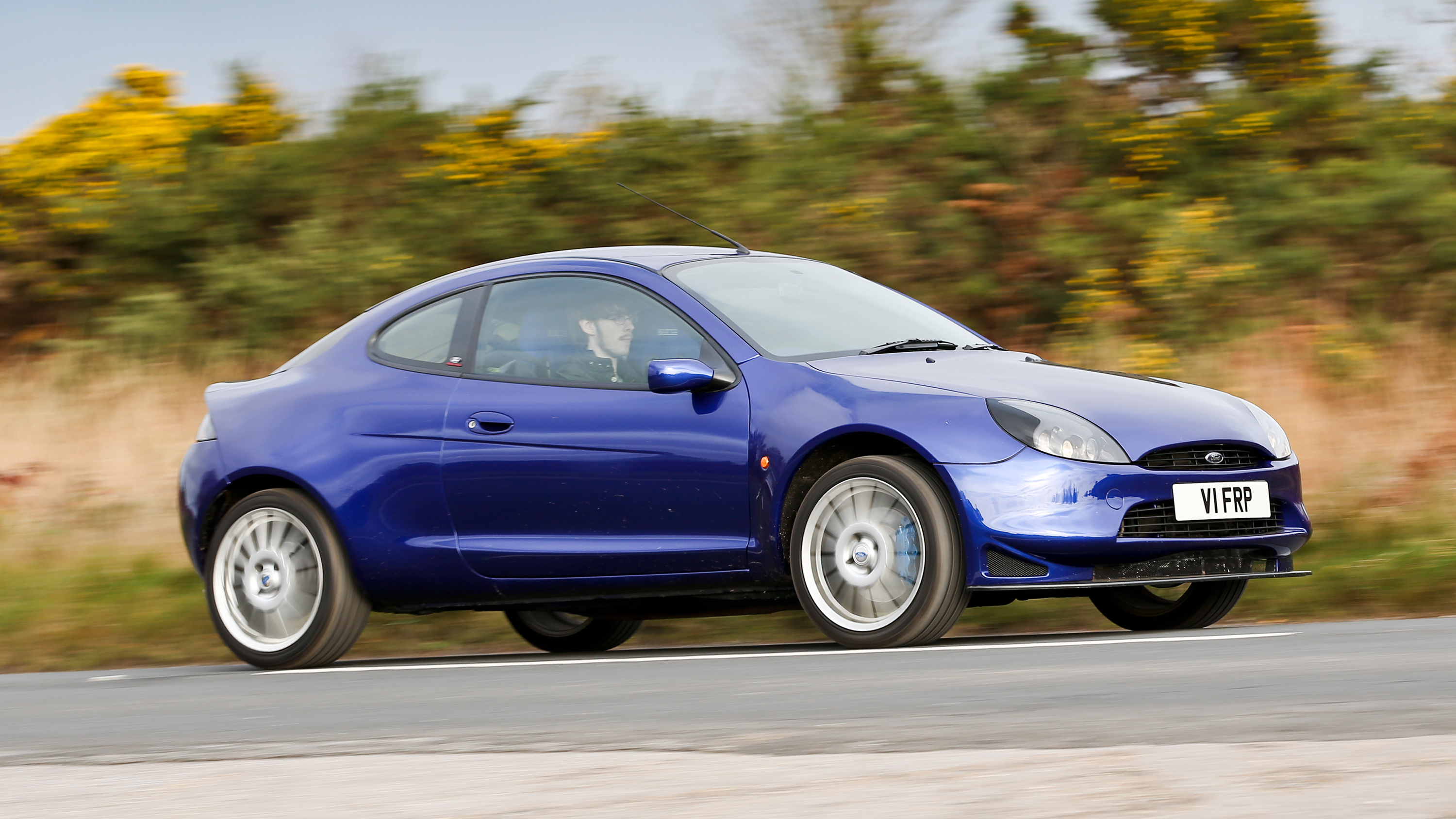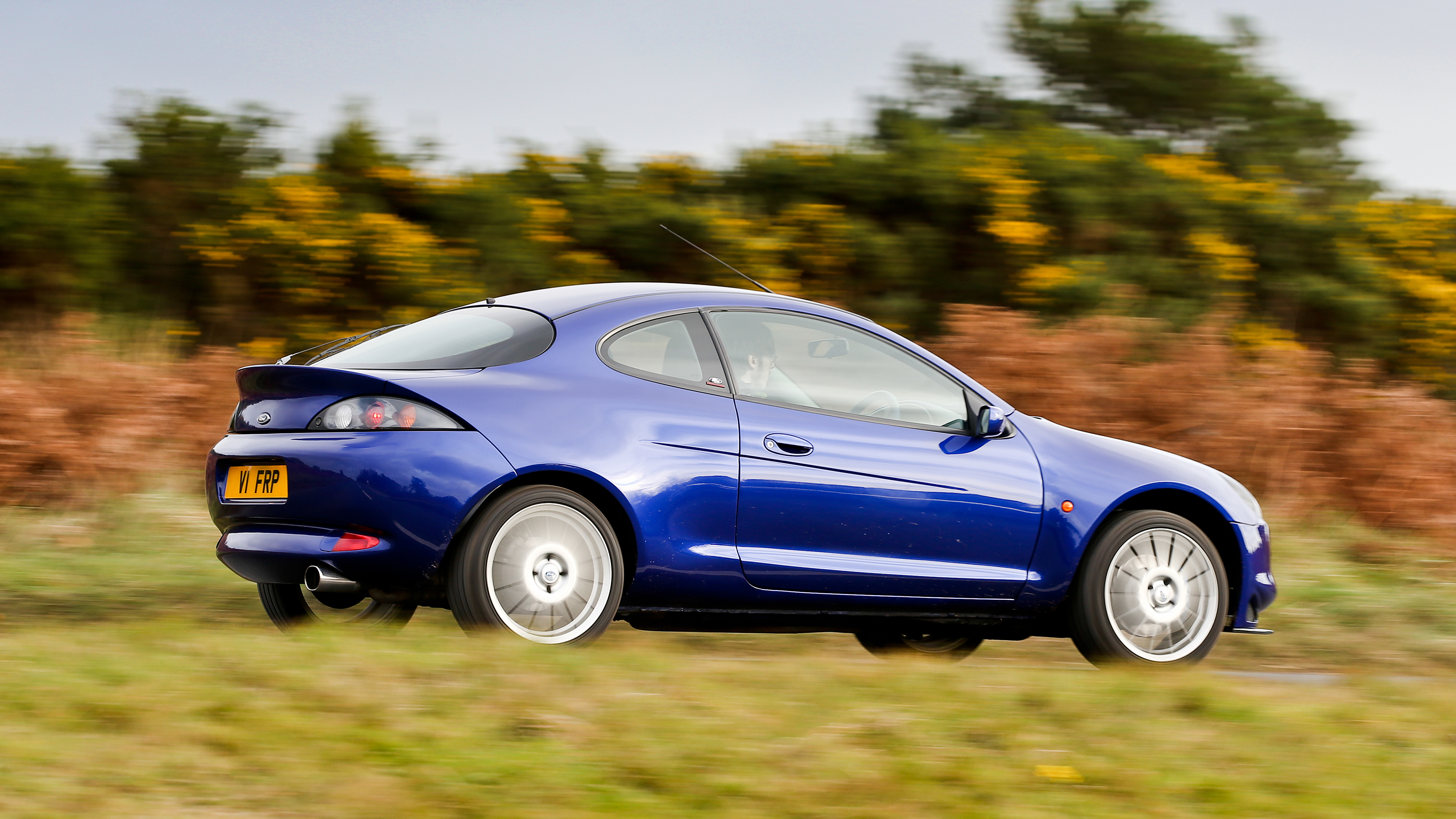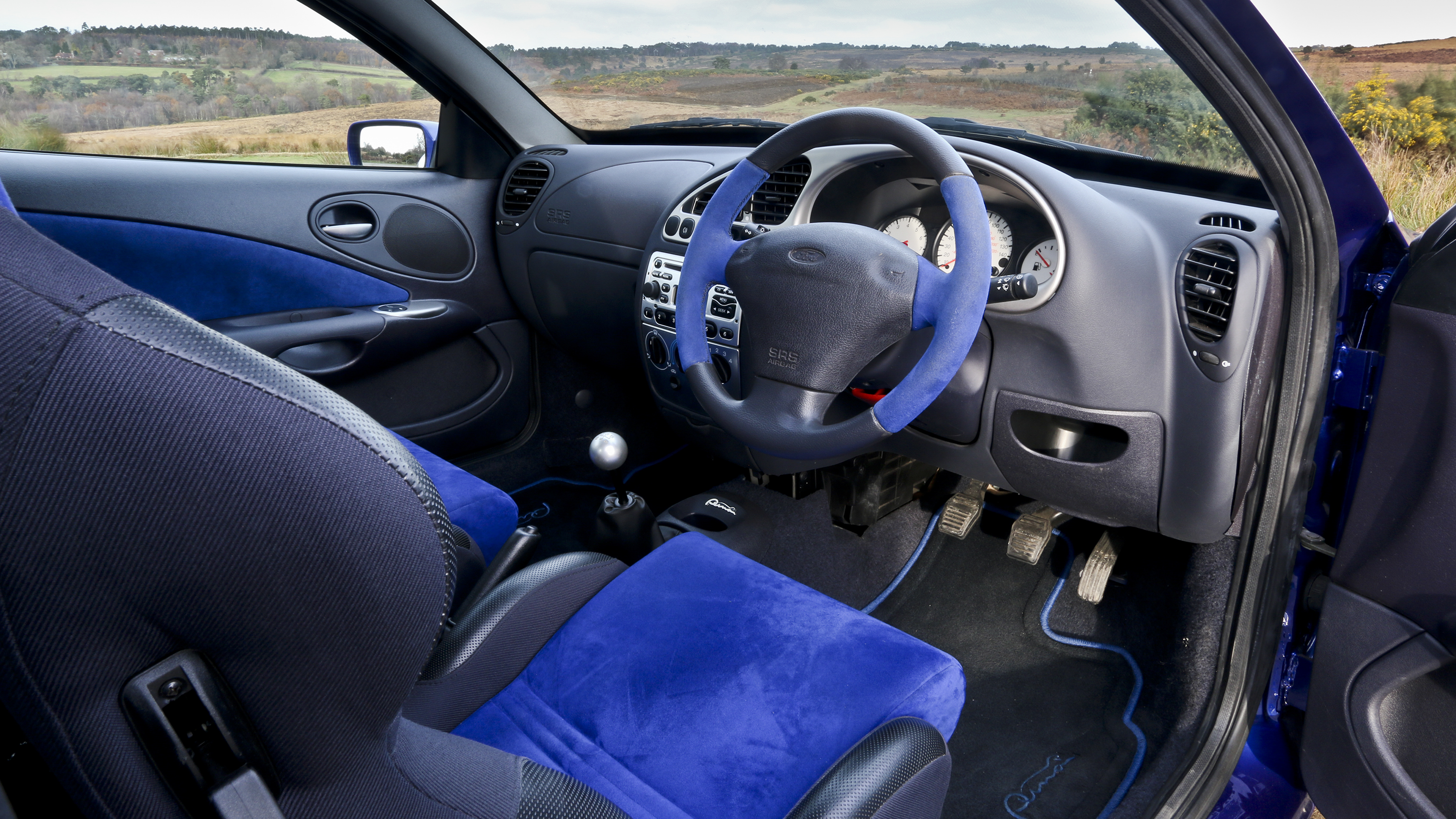
Driving
What is it like to drive?
Drive anything from the 1990s or early 2000s today and it’s the clarity and abundance of its feedback that’s most immediately noticeable. The Ford Racing Puma is no different. The steering is fantastic, the wheel small and hugely communicative.
The ride is very firm, and you’re jiggled about a fair bit on Britain’s bumpier B-roads. But it’s no worse than the current Fiesta ST. And a firmly sprung small car immediately puts you in the mood to grab it by the scruff of its neck, and that’s exactly the treatment the FRP relishes.
Its grip is seriously impressive, and it takes two corners before you’re utterly faithful in the car beneath you, and willing to drive it as quickly as you can muster.
Which is a blessing and a curse. The standard Puma had a great power-to-grip ratio; it was a fun and playful thing, but all at very sensible speeds.
The Racing Puma, in comparison, is a bit serious. It’s undoubtedly more capable than the car it’s based upon, but the improvements to its chassis far outstrip the upgrades to its engine. You end up with a car whose limits are much, much higher than before. All the more reason to drive it harder and harder, though...
And short on muscle it may be in this car, the engine is still an utter gem. It’s just a joy to rev, and it’s impossible to resist driving it everywhere like a 17-year-old who’s just torn off the L-plates. It may technically be a small coupe, but its attitude is 100 per cent hot hatch.
Probably worth tweaking your FRP to have a touch more power, mind. Not loads - something close to 200bhp would still be well within the chassis’s limits, and would probably liven it up quite nicely. Perhaps this Puma would shine brighter if its on-paper stats were a little bigger.
There’s so much to enjoy as standard though, its most praiseworthy element being its gearchange. The Puma’s slick, satisfying shift is one of the best we’ve ever used. Seriously. And the Alcantara steering wheel is an object of nerdy joy.
In fact, the whole car is a bit like that. Dig beneath its maxi rally car looks and its whole backstory is a geek’s dream. Like this one: Richard Parry-Jones – the man who made late 1990s Fords so sublime to drive – decided the chassis setup should be firmer, and so a set of ‘RPJ’ dampers were made to fulfil his wish.
Actually, 20 sets were made, and for around £600, you can add one of those to yours now. Think you’d have to, wouldn’t you?
Variants We Have Tested
Trending this week
- Car Review
BMW 1 Series









